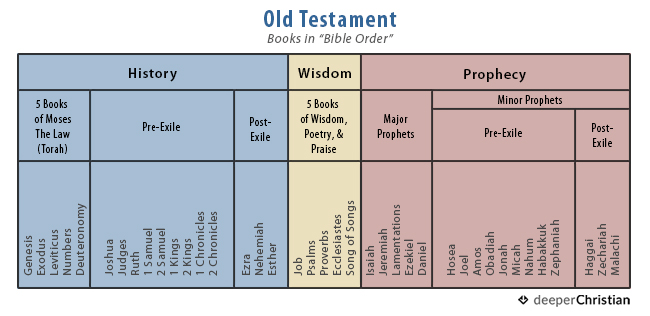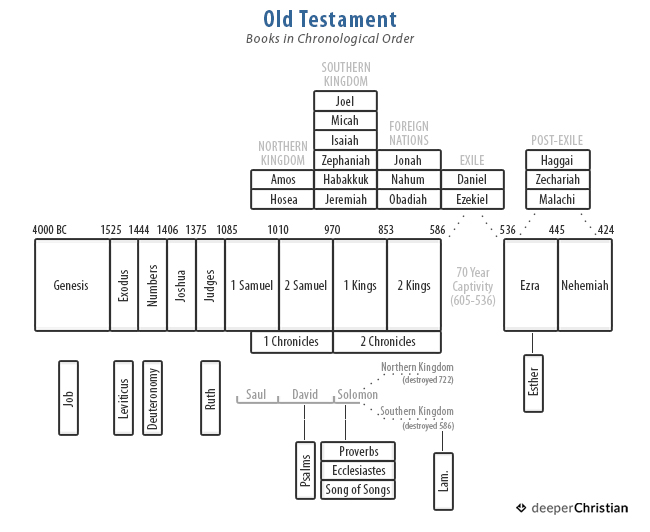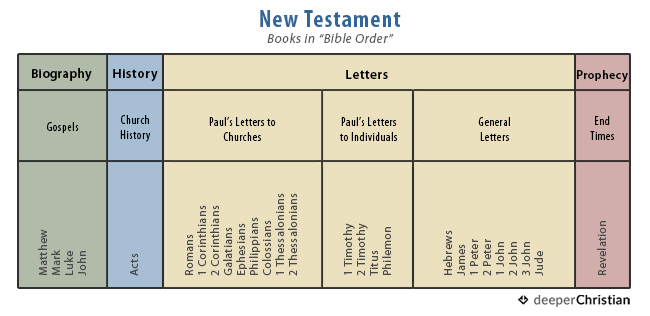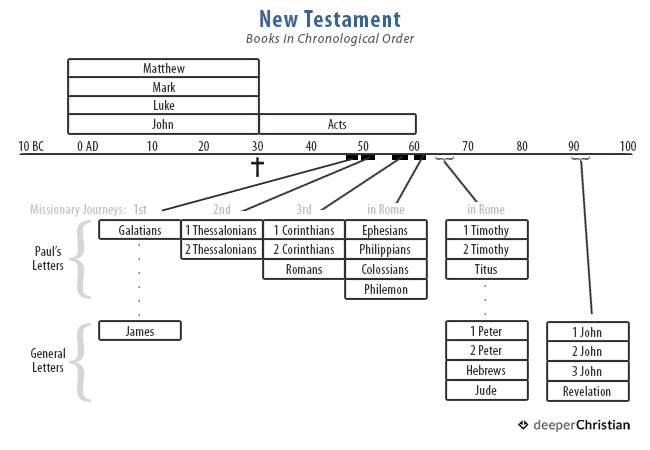Understand what the Word of God is and what it means for your faith
Even before we study the Bible, we must first understand what it is—yet many of us take for granted the 1000+ pages clothed in leather that we carry to church each Sunday. So what is this book we call “Scripture,” “God’s Word,” or “the Bible”?
Growing up in church I was often told to read, study, memorize, meditate upon, and know the Bible. I spent countless hours in Sunday School with a flannel board or cut-out characters taped to toliet paper tubes to help illustrate the stories throughout Scripture. We had Bible quizzing, conferences, retreats, and weekly events all focused on this book, yet rarely did someone stop and actually explain these 66 books we call God’s Word.
At the onset of discipleship, it is vital for us to know the importance of Scripture and what it actually is.
What is the Bible?
The Bible is a collection of sixty-six books written over a span of 1400 years, by 40 different authors from every from every walk of life. Its words cover history, law, poetry, parable, biography, personal correspondence, and prophecy. The entirety of Scripture is perfect in its unity—where no part contradicts another.
FF Bruce once described Scripture by saying:
Any part of the human body can only be properly explained in reference to the whole body. And any part of the Bible can only be properly explained in reference to the whole Bible. The Bible, at first sight, appears to be a collection of literature – mainly Jewish. If we enquire into the circumstances under which the various Biblical documents were written, we find that they were written at intervals over a space of nearly 1400 years. The writers wrote in various lands, from Italy in the west to Mesopotamia and possibly Persia in the east. The writers themselves were a heterogenous number of people, not only separated from each other by hundreds of years and hundreds of miles, but belonging to the most diverse walks of life. In their ranks we have kings, herdsmen, soldiers, legislators, fishermen, statesmen, courtiers, priests and prophets, a tentmaking Rabbi and a Gentile physician, not to speak of others of whom we know nothing apart from the writings they have left us. The writings themselves belong to a great variety of literary types. They include history, law (civil, criminal, ethical, ritual, sanitary), religious poetry, didactic treatises, lyric poetry, parable and allegory, biography, personal correspondence, personal memoirs and diaries, in addition to the distinctively Biblical types of prophecy and apocalyptic. For all that, the Bible is not simply an anthology; there is a unity which binds the whole together. An anthology is compiled by an anthologist, but no anthologist compiled the Bible.
The 66 Books of the Bible
As just mentioned, the sixty-six books of the Bible are distinct yet with a single theme. It is split into two major collections: the Old Testament and the New Testament.
As WT Purkiser wrote:
These halves [Old and New Testaments] of the Bible cannot truly be separated. They deal with a single theme … throughout the whole runs an organic unity. No part could be taken out without destroying something vital to the whole. The Old Testament is incomplete without the New Testament. The New Testament requires the Old Testament as its foundation. As Francis Bacon long ago observed, “The New Testament is enfolded in the Old; the Old Testament is unfolded in the New.”
As we will examine in a future article, all Scripture pertains to Jesus Christ and finds its fulfillment in Him. The Old Testament points to and leads us to the cross of Christ at Calvary and the New Testament flows from His amazing victory and triumph upon the cross.
The Old Testament
The Old Testament is the first 39 books of the Bible, covering approximately 4000 years of history. It’s considered Scripture for both Jews and Christians.
The Old Testament begins with the creation of earth (and the universe) [yes, I subscribe to the young earth creation view, but more on that another time], describes why the earth and humans are the way they are (it’s called “sin”), who God is and what He wants to do to free His people from the consequences of sin (I’ll give you the secret: it leads us to our need for Jesus). In its pages we discover God’s promises and covenants, and we trace the history of His chosen people through their ups and downs. The Old Testament ends with the Hebrew nation, the Jews, returning from captivity, rebuilding the temple and reestablishing life in the Promised Land of Israel.
It’s important to note that while the organization of the Old Testament books are not in chronological order, there is a purposeful arrangement to it.
The order of the Old Testament in the Bible
History
5 Books of Law (The Books of Moses: The Torah)
Genesis
Exodus
Leviticus
Numbers
Deuteronomy
Pre-Exile History
Joshua
Judges
Ruth
1 & 2 Samuel
1 & 2 Kings
1 & 2 Chronicles
Post-Exile History
Ezra
Nehemiah
Esther
Wisdom, Poetry, and Praise
Job
Psalms
Proverbs
Ecclesiastes
Song of Songs (Song of Solomon)
Prophecy
Major Prophets*
Isaiah
Jeremiah
Lamentations
Ezekiel
Daniel
Minor Prophets*
Hosea
Joel
Amos
Obadiah
Jonah
Micah
Nahum
Habakkuk
Zephaniah
Haggai
Zechariah
Malachi
*What is the difference between the “Major Prophets” and the “Minor Prophets”?
We distinguish the prophetic books into “major” and “minor” categories—this emphasis is not about the importance or impact of the book but a literary distinction of the actual length and focus of the book. The Major Prophets are called thus because they are longer in length and have more of a global focus in their content than the the Minor Prophets—which are usually shorter in length and their content is more narrowly focused. Though one could argue that Hosea and Zechariah are longer in length than Daniel, Daniel is still considered a Major Prophet because of the book’s global focus while Zechariah and Hosea have a narrow message and focus. Also note that Lamentations is included where it is because though short, it was written by Jeremiah and it logically made sense to include it with his book.

The chronological order of the Old Testament

The New Testament
The New Testament is the remaining 27 books of the Bible—with the primary focus of Jesus Christ and Him crucified (and resurrected).
The New Testament begins with the Gospels, the first four books containing the life and words of Jesus Christ. It continues with the history of Jesus’ disciples, the early Church, letters of encouragement, exhortation, and warning, and concludes with the apocalyptic (prophetic/end-times) book of Revelation describing the return of Jesus Christ.
Again, it’s important to note that the order of the New Testament books in the Bible are not in chronological order, but there is a purposeful arrangement to it.
The order of the New Testament in the Bible
The Gospels (Life and Words of Jesus Christ)
Matthew
Mark
Luke
John
History (of the early Church and the works of the Holy Spirit)
Acts
Letters (Epistles)
Paul’s Letters to Churches
Romans
1 & 2 Corinthians
Galatians
Ephesians
Philippians
Colossians
1 & 2 Thessalonians
Paul’s Letters to Individuals
1 & 2 Timothy
Titus
Philemon
General Letters
Hebrews
James
1 & 2 Peter
1, 2, & 3 John
Jude
Apocalyptic (Prophecy)
Revelation

The chronological order of the New Testament
Note: there is some debate amongst scholars of the date some New Testament letters were written, but after much study and investigation, this is what I’ve come to.

Who Wrote the Bible? (The Inspiration of Scripture)
As mentioned previously, 40 different authors penned Scripture over about 1400 years.
Yet one of the tenets of Christianity is that we believe in the inspiration of Scripture. In other words, though the Bible was written by 40 different authors, we believe they were carried along by the Holy Spirit who told them what to write—thus we call it the “Word of God” because the Bible is not the words of men but of God Himself.
God used these men—including their distinct writing styles and personalities—and actually spoke to us. 2 Timothy 3:16-17 says:
All Scripture is given by inspiration of God, and is profitable for doctrine, for reproof, for correction, for instruction in righteousness, that the man of God may be complete, thoroughly equipped for every good work.
The word “inspiration” can actually be translated “God breathed.” Though He did not pick up a literal pen and write words, God spoke His words through the mouths (and pens) of these 40 authors. Yet we must realize that when we read the book of Luke, we are not hearing Luke, we are hearing God Himself speak to us. Yes Luke penned the words, using his personality and writing style, but the Holy Spirit was using Luke to declare the message God wanted written.
This concept is seen throughout Scripture. For example in Acts 1:16, Peter stands up and declares
Men and brethren, this Scripture had to be fulfilled, which the Holy Spirit spoke before by the mouth of David concerning Judas…
Speaking about a statement David made in Psalm 69 and 109, Peter says “yes, our forefather David declared these words about Judas (a man whom was not born for 1000 years after David wrote the Psalms) … and though David penned the words, it was actually the Holy Spirit (God Himself) who spoke them.”
So did David write the words or did God? Both actually. David was carried along by the Holy Spirit to write the Psalms. Yes they were David’s words but more accurately they were God’s words spoken through David.
Similarly the book of Hebrews is full of this idea. For example in chapter one, several times an Old Testament passage is quoted but the author is said to be God. Starting in verse five:
For to which of the angels did He ever say:
“You are My Son, Today I have begotten you”? (Psalm 2:7)
And again:
“I will be to Him a Father, And he shall be to Me a Son”? (2 Samuel 7:14)
But when He again brings the firstborn into the world, He says:
“Let all the angels of God worship Him.” (Deut 32:43)
And of the angels He says:
“Who makes His angels spirits and His ministers a flame of fire.” (Psalm 104:4)
But to the Son He says:
“Your throne, O God, is forever and ever; a scepter of righteousness is the septer of Your kingdom. You have loved righteousness and hated lawlessness; therefore God, Your God, has anointed You with the oil of gladness more than Your companions.” (Psalm 45:6-7)
And:
“You, Lord, in the beginning laid the foundation of the earth, and the heavens are the work of Your hands. They will perish, but You remain; and they will all grow old like a garment; like a cloak You will fold them up, and they will be changed. But You are the same, and Your years will not fail.” (Psalm 102:25-27)
But to which of the angels has He ever said:
“Sit at My right hand, till I make Your enemies Your footstool”? (Psalm 110:1)
In these few verses of Hebrews (1:5-13), quotes are made from the writings of Moses, Samuel, and the Psalms (the Psalms listed above were written by David, the Sons of Korah, and a couple unknown authors) yet they are all said to be said by God.
On a side note, there is an interesting parallel between Jesus (the Living Word) and the Bible (the Written Word). We believe that Jesus was fully God and yet fully man—in one person. He didn’t have pieces of both, He was God incarnate, two-in-one if you will. In a similar sense, the Bible is both the words of men and the words of God—or perhaps better stated: the words of God as written through the pen of men—two-in-one if you will.
Inspiration, Inerrancy, and Infallibility of Scripture
It is often said that Scripture is like a three-legged table—you need all three legs to hold it up, remove one and it will fall.
Throughout Christian history we have used three words to talk about the importance and immutability of Scripture. It is because of these concepts that we strongly stand and build our lives upon the Word of God. I can take the promises of God to the bank because I know they are true. I know I can have confidence in the character and nature of God. How can I know for sure?—because of these three things:
1. Inspiration of Scripture
We addressed this in the section above about who wrote the Bible, but in short, the inspiration of Scripture states that God is the origin of the Bible. The Bible is written by God and is the very words of God.
2. Inerrancy of Scripture
Inerrancy addresses the fact that the Bible is without error. As one theologian explained it, inerrancy is a belief in the “total truthfulness and reliability of God’s words” (Grudem, Systematic Theology, Inter-Varsity, 2004, 90). The Word of God is truth as Jesus declared in John 17:17.
3. Infallibility of Scripture
Infallibility declares that the Bible is authoritative and will endure forever. To be infallible means it is permanent, not able to fail or be broken. Jesus said in John 10:34-35 that “Scripture cannot be broken.” Peter wrote “the word of God which lives and abides forever … the word of the LORD endures forever” (1 Peter 1:23, 25).
Scripture Cannot Lie
Scripture makes it clear that God cannot lie.
Titus 1:2 says … God, who cannot lie, promised … Similarly Hebrews 6:18 says … it is impossible for God to lie …
As believers we are confident that the Word of God is in fact the words of God (inspiration of Scripture) … and because God cannot lie and the Bible is His words, Scripture then cannot lie.
I can stand confident upon God’s Word because I know that Scripture is His words and what He says is truth (John 17:17). I do not have to waiver, bend, question, or doubt.
Christians are called “believers” because we believe. I believe what He says is true. I believe His promises. I believe that Jesus’ atoning work upon the Cross forgave my sins, removed my guilt, purchased my freedom, and enabled me to have relationship with God. I know I can live in victory and triumph. I can have peace. I can live with unlimited joy. I don’t have to fear, be worried, or have anxiety. Why? Because I know His Word is true. I can build my life upon it.
Why the Bible is Important to Your Life
Do you see the necessity and importance of Scripture in your life?
These are the very words of the God of the universe spoken to you and me. He cannot lie, His promises are sure, and thus I can trust and put my confidence in what He said.
When I was a kid I often longed for a burning bush experience or some neon sign in the sky to give me wisdom, understanding, and direction for life. I look back and laugh because I realize what I wanted was a clear word from the Lord about my life. Do you see the irony? I wanted God to speak to me yet He HAS spoken! I have His words contained in The Word. It is not some dull, dusty, and dry book—it is living, active, powerful and is a double-edged sword in my life.
For the word of God is living and powerful, and sharper than any two-edged sword, piercing even to the division of soul and spirit, and of joints and marrow, and is a discerner of the thoughts and intents of the heart. (Hebrews 4:12)
The question is not “will God speak?”—the real question is “will I listen, heed, and obey the Word He has spoken?”
So What Do I Do Now?
Great question. Here are three suggestions:
- Believe God’s Word. Don’t just sit passively by, believe it. Obey it. Know it.
- Read and Study God’s Word. It’s not good to know what the Bible is unless you actually dive into its pages. Here’s a great place to start.
- Memorize and Meditate upon God’s Word. Hide God’s Word in your heart (Psalm 119:11). Meditate (dwell, think, ponder) upon it day and night (Joshua 1:8).
Disclosure of Material Connection: Some of the links in the post above are “affiliate links.” This means if you click on the link and purchase the item, deeperChristian will receive an affiliate commission (with no additional cost to you). It is a great way to support the work and ministry of deeperChristian. Regardless, we only recommend products or services we use personally and believe will add value to our readers. We are disclosing this in accordance with the Federal Trade Commission’s 16 CFR, Part 255: “Guides Concerning the Use of Endorsements and Testimonials in Advertising.”












